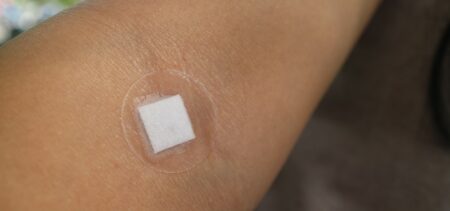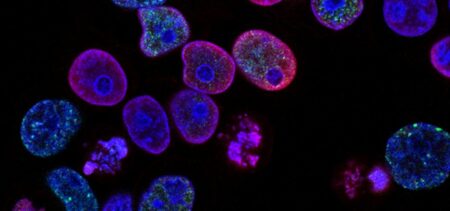There is no question that cardiovascular diseases (CVDs) are a top priority for scientists and healthcare experts. According to the World Health Organization (WHO), CVDs are the leading cause of death globally, with 17.9 million people dying every year.
The most common CVDs include coronary heart disease, cerebrovascular disease, peripheral arterial disease, rheumatic heart disease, congenital heart disease, deep vein thrombosis, and pulmonary embolism.
In addition, heart disease is also the leading cause of death among American men and women—one person dies every 34 seconds. Although they are the top causes of death, disability, and healthcare spending in the US, 80% of heart disease and strokes are preventable,
As CVDs are strongly associated with risk factors, such as unhealthy diets, physical inactivity, smoking, and excessive use of alcohol, correcting these unhealthy habits may be the first step in preventing these diseases.
This article will explore several scientific breakthroughs in the treatment and prevention of CVDs, and how technology will play a pivotal role.
Using AI to Predict CVDs
According to a recent study, scientists may be able to predict CVDs like arterial fibrillation and heart failure by using artificial intelligence (AI) to examine genes in DNA. This study demonstrates that AI can analyze the genes of patients suffering from CVDs. By extracting these insights, scientists can find crucial biomarkers and risk factors associated with CVD susceptibility.
Zeeshan Ahmed, the lead author of the study, said his team was able to use an AI model to predict the connection between multiple demographic variables and genes highly significant to cardiovascular diseases.
In addition, further research confirms that AI algorithms are becoming increasingly popular to detect and prevent CVDs. As such, more clinical studies will begin to adopt this technology, providing increased opportunities for AI and CVD treatments in the following years.
Reducing Cardiovascular Events
Prevention is a critical aspect of managing the significant rise of CVDs. However, treatment remains the only option for patients suffering from cardiovascular disorders.
According to the findings of a recent clinical trial, a cholesterol-lowering drug could help statin-intolerant patients reduce their low-density lipoprotein (LDL) cholesterol levels—this can prevent patients from suffering heart attacks and strokes.
In addition, bempedoic acid is also used to reduce the number of heart attacks and coronary procedures for these patients. The study’s lead author, Steven E. Nissen, MD, confirms that this drug could play a leading role in reducing the risk of serious cardiac events for patients who cannot use statins.
Another study proved a link between the use of Icosapent Ethyl, in 2-gram doses, twice daily can help treat CVD patients while preventing it in those at risk. Moreover, the results of this clinical trial were most consistent among patients with diabetes and those across the kidney infection spectrum.
Approving Cholesterol-Managing Drugs
Bempedoic acid is not the only drug that could play a leading role in reducing cholesterol. According to Healthline, the Food and Drug Administration (FDA) recently approved inclisiran, a substance sold as “Leqvio”. Inclisiran offers a critical advantage—it is an injectable substance that only needs to be administrated every 6 months. As such, this drug is safe, easy to use, and effective in reducing cholesterol, and it has also been proven to reduce cardiovascular events.
Another clinical trial confirms that inclisiran can help patients with a high risk of atherosclerotic CVD. While this trial does not validate the sole use of inclisiran, it confirms this medication can improve treatment adherence and clinical outcomes for large groups of high-risk patients.
However, according to this study, medication with inclisiran must be more affordable before it is accessible to most of the public for CVD prevention.
Treating CVDs in Cancer Patients
Cancer patients who also suffer from CVDs are not easy to treat, as confirmed by a recent clinical trial. This trial indicated that cancer patients with CVDs require personalized healthcare, and inhibiting any of these conditions can make it more challenging to recover from cancer. Essentially, CVDs can drastically weaken the immune system, worsening the condition of cancer patients.
As confirmed by research, 394,849 out of 7 million cancer patients have died due to heart disease. While this number may not be a significant percentage of the total trial subjects, this only accounts for one specific CVD.
Another study to determine and validate preventative measures for CVDs in cancer patients concluded that cancer patients need focused medical and lifestyle interventions to identify potential risks of CVDs or developing CVDs.
Researchers suggest AI predictive models analyze the likelihood of CVDs in tested cancer patients, yet, further research is required to establish accurate preventative methods.
Treating and Preventing CVDs
CVDs are undoubtedly one of the most critical healthcare problems in the world, and researchers and doctors are making considerable efforts to understand, treat and prevent these disorders. While new technologies, like AI, could prove extremely useful in predicting the onset of CVDs, new treatments, such as cholesterol-managing drugs, could prove effective too.
Similarly, researchers and healthcare facilities are conducting various studies to determine preventative solutions for CVDs among cancer patients. And while more research is required before minimizing the number of patients with CVDs, the current findings create a promising landscape for the following years.
































